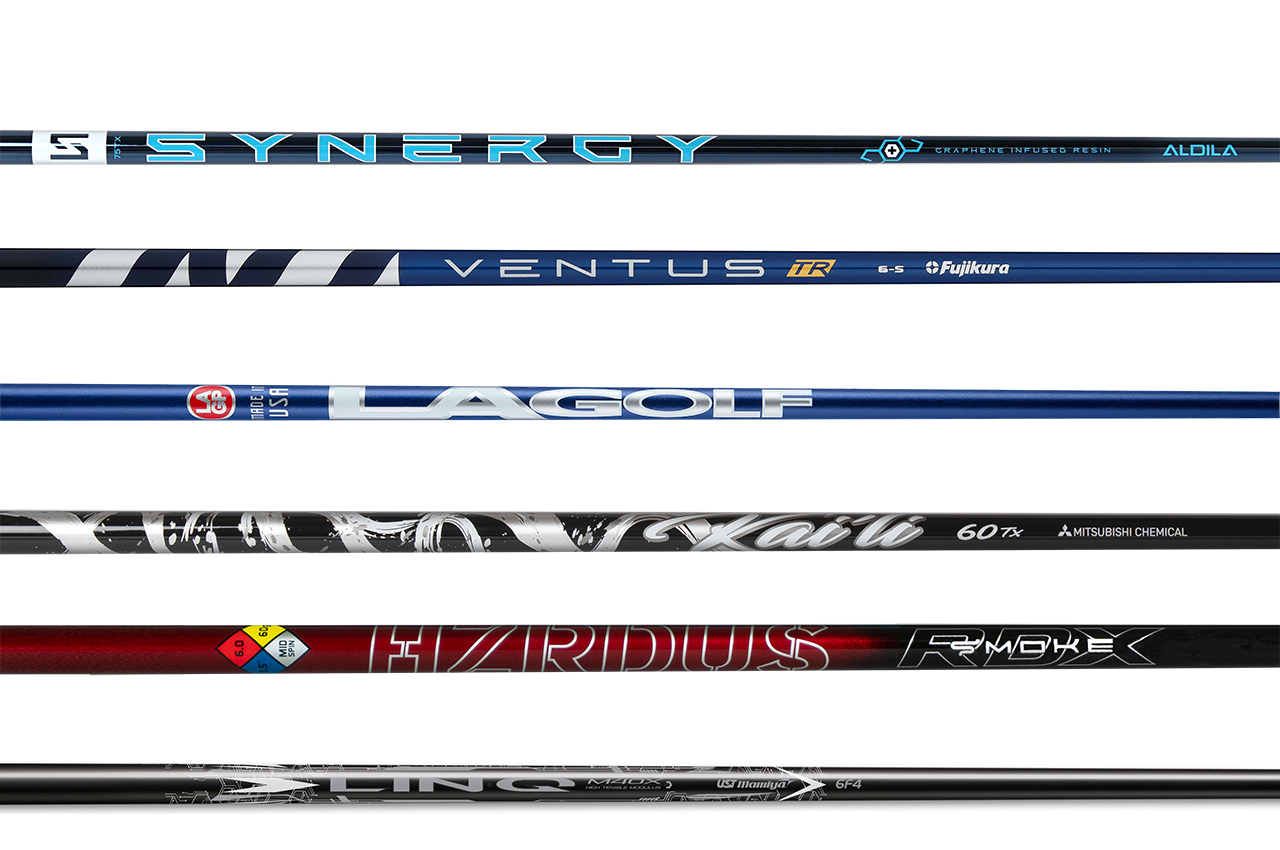Rory McIlroy swings a driver with a Fujikura Ventus Black shaft. Jon Rahm uses an Aldila Tour Green shaft, and Justin Thomas opts for a Mitsubishi Diamana ZF shaft in his driver. Off the tee, all three are sensational, and this perfectly illustrates how one product will never be perfect for everyone when it comes to shafts.
For that reason, companies that develop graphite shafts for drivers are constantly tinkering with new materials, manufacturing techniques and designs to offer a portfolio of shafts that best work for every swing.
The cliché goes that the shaft in your driver is like the engine in your car: It creates the power so everything else can perform. That’s true, and many highly skilled custom fitters prefer to start driver sessions by hunting for a player’s ideal shaft. Only after they discover it do they begin thinking about which head and loft the player needs.
When it comes to driver shafts, there are no set-in-stone rules, but some things are typically true:
When referring to flex, terms such as regular, stiff or extra stiff do not have universal standards. They mean different things to different companies.
Heavier shafts create a lower flight, while lighter shafts often help golfers swing faster.
Shafts that are more flexible in the tip, where the shaft attaches to the clubhead, tend to produce higher-flying shots
Longer shafts can help players generate more speed, but recreational golfers tend to often mis-hit longer-shafted drivers. Many club players swing shorter-shafted drivers more slowly, but they hit the center of the face more often, resulting in longer and straighter drives.
The only way to know which driver shaft can help you find the perfect blend of ball speed, launch angle and spin rate is to work with an experienced custom fitter who has a launch monitor. The shafts listed below are among the newest on the market and come in various weights and flexes.

